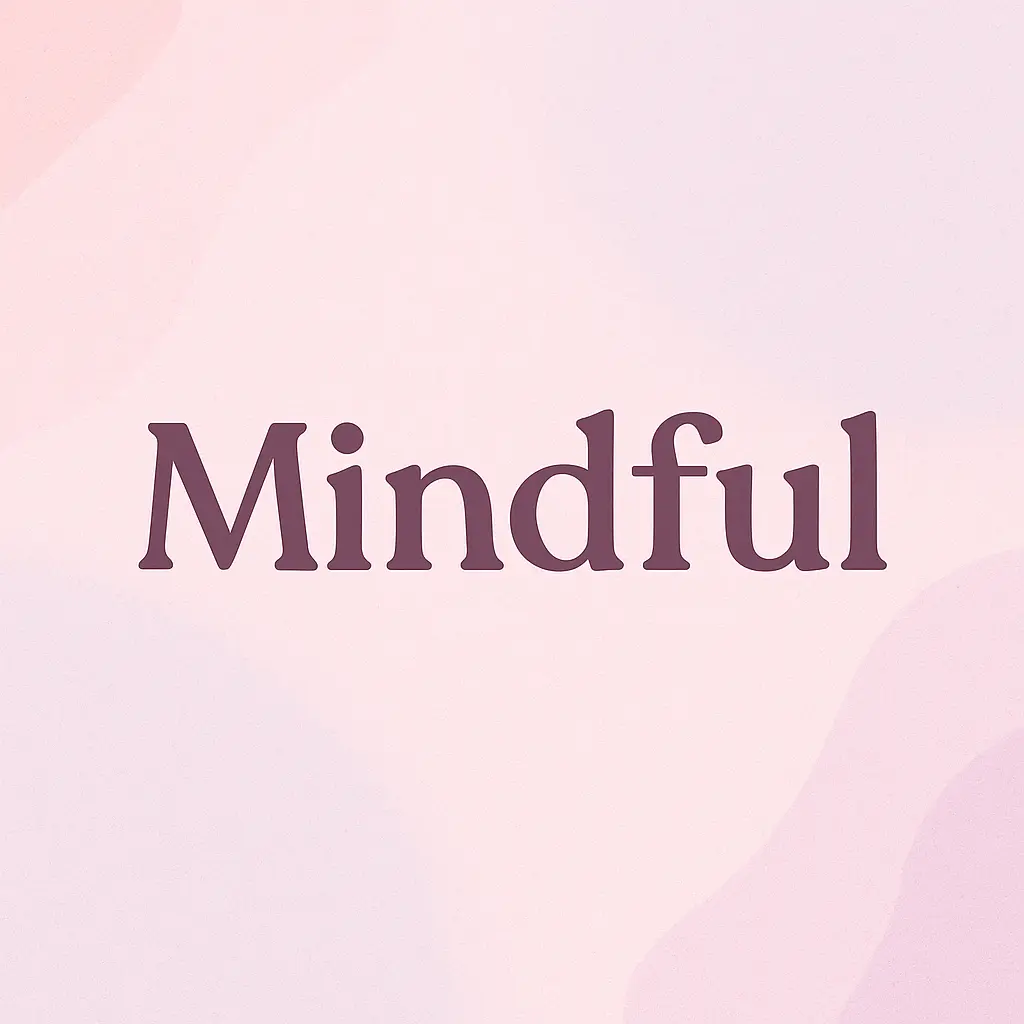What Does “Mindful” Mean?

In today’s fast-paced world, the term “mindful” has gained significant attention, especially within discussions about mental health, wellness, and personal growth. But what does it really mean to be mindful? And why has it become such an important concept?
Definition of “Mindful”
“Mindful” refers to the practice of being fully aware and present in the moment. It involves paying attention intentionally, without judgment, to what’s happening right now—whether it’s your thoughts, feelings, or actions.
Being mindful is often associated with mindfulness practices like meditation, but it can also be integrated into everyday life to enhance focus, reduce stress, and improve emotional well-being.
Origin of the Term:
The term “mindful” comes from the concept of mindfulness, which has roots in Buddhist teachings. Mindfulness refers to paying attention to the present moment with an open, non-judgmental attitude. It has since spread beyond meditation into various areas of life, including therapy, stress management, and even in the workplace.
Why is Being Mindful Important?
Being mindful allows us to connect with our thoughts and emotions in a non-reactive way. It enhances our ability to stay calm in stressful situations, improve concentration, and develop healthier habits. Through mindfulness, we can break free from the cycle of stress, anxiety, and distractions that often lead us to feel overwhelmed.
How is “Mindful” Used?
The word mindful can be used in a variety of contexts:
- Mental Health & Well-Being: Mindfulness practices are widely used to help people manage stress, anxiety, and depression. Being mindful in the moment allows for emotional regulation and clarity.
- Example: “She practiced mindful breathing to calm her nerves before the presentation.”
- Relationships: Being mindful of others is essential in building strong, positive relationships. It involves being aware of their needs, emotions, and actions.
- Example: “He was mindful of her feelings when making that decision.”
- Everyday Tasks: You can practice mindfulness in everyday activities such as eating, walking, or even listening to someone. By being fully engaged in what you’re doing, you foster a deeper connection with your actions and surroundings.
- Example: “He tried to be mindful of his eating habits, savoring each bite.”
- Mindful Meditation: Meditation is a common method used to practice mindfulness, where you focus on your breath, thoughts, and body sensations to remain in the present moment.
- Example: “She attended a weekly mindful meditation session to improve her mental clarity.”
Real-Life Use Cases of “Mindful”
| Context | Description | Example |
|---|---|---|
| Mental Health | Reduces stress, enhances emotional regulation | “She practiced mindful breathing before bed.” |
| Relationships | Being present and considerate in conversations | “Be mindful of how your words may affect others.” |
| Workplace | Focusing and reducing distractions for productivity | “Try to be mindful during the meeting, and stay on topic.” |
| Daily Activities | Engaging fully in daily tasks with awareness | “Mindful eating can help improve digestion and enjoyment.” |
How to Practice Mindfulness Daily
- Start Small: Practice mindfulness for a few minutes each day.
- Focus on Your Breath: Breathe deeply and pay attention to each inhale and exhale.
- Be Present: Engage in activities fully without distractions, like walking, eating, or even talking to someone.
- Let Go of Judgment: Observe your thoughts and feelings without labeling them as “good” or “bad.”
Curious about other popular internet phrases? Check out our explainer on “Bussin”, explore the mindset behind the “Sigma” male trend, or learn the political significance of “All Eyes on Rafah.”
Frequently Asked Questions About “Mindful”
A1: Yes! Practicing mindfulness helps reduce stress by encouraging relaxation and increasing your awareness of the present moment, rather than dwelling on the past or worrying about the future.
Q1: Can mindfulness help reduce stress?
Q2: Is mindfulness only for meditation?
A2: No, mindfulness can be practiced outside of meditation too. You can practice mindfulness in everyday activities, like walking, eating, or even during conversations.
Q3: How can I start being more mindful?
A3: You can start by dedicating a few minutes each day to mindful breathing or meditation. Gradually, you can bring mindfulness into your daily routine by focusing on being present in each moment.
Q4: Is being mindful the same as being focused?
A4: Being mindful goes beyond just focus. It includes being aware of your thoughts and feelings without judgment, while focusing typically refers to concentrating on a specific task or goal.






